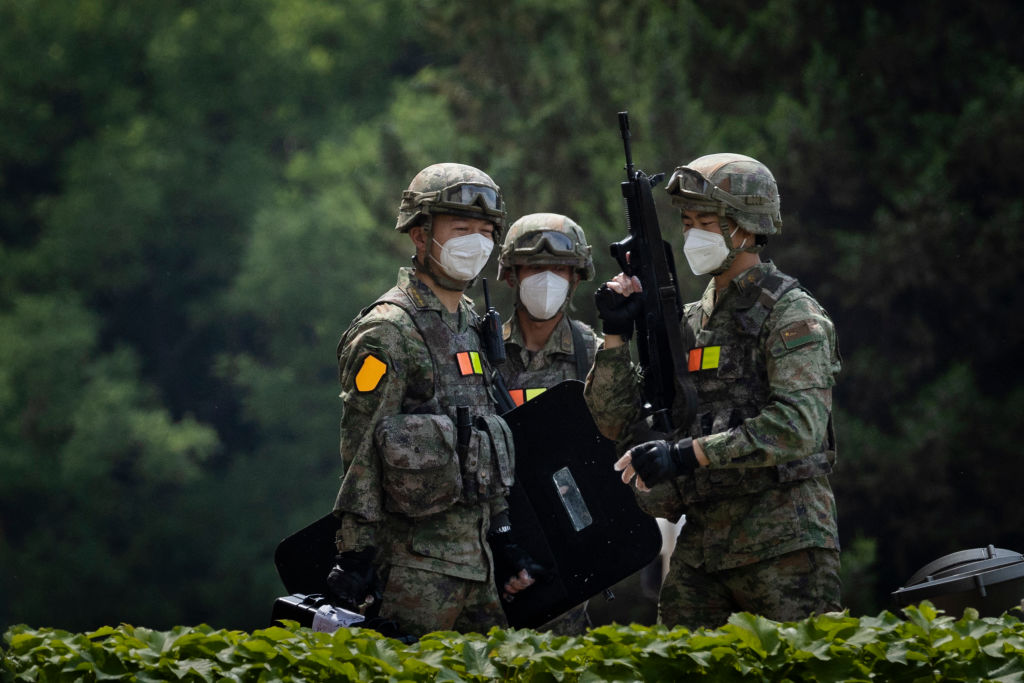ADF STAFF
The recent mutiny by Russia’s Wagner Group and potential changes to the mercenary group’s operations in Africa could make room for China to expand its own private security footprint on the continent, according to experts.
Since 2010, China has deployed a small but growing number of private security companies (PSCs) across Africa, primarily to protect projects built under its Belt and Road Initiative. While exact numbers are hard to come by, experts estimate that 20 to 40 Chinese PSCs operate outside of China. They have been documented in 14 African countries, most of them in East Africa or Southern Africa.
Despite the word “private” in their names, Chinese PSCs are state-owned enterprises and operate under strict rules, including a ban on carrying weapons. Chinese PSCs don’t engage directly in combat and instead hire armed locals for that purpose while training police and other security personnel behind the scenes.
Observers say those rules could change.
“Although the growth of Chinese PSCs is still limited by the restrictions that prohibit the possession of lethal weapons, given their nature as state-owned enterprises (SOEs) — and the possibility that continued increases in their size and operations will eventually lead to more combative interventions in the near future — such restrictions may be altered over time,” researchers Jong Min Lee and Samuel Wittman wrote recently for The Diplomat.
Russian leaders have said Wagner will remain in Africa. However, recent video from Bangui, Central African Republic (CAR), from early July shows hundreds — some reports say up to 600 — Wagner Group mercenaries boarding planes to leave the country.
The Wagner Group has become a dominant force in the CAR, serving as advisors and bodyguards to the nation’s president and, through affiliates, operating diamond and gold mines, promoting its own brands of beer and vodka, and driving support for Russia through a variety of propaganda methods.
Wagner’s status appears likely to shift following owner Yevgeny Prigozhin’s high-profile mutiny and threat to march on Moscow in June. Since then, Russia has sought to assert direct control over Wagner and its affiliates, which had been held at arm’s length until Prigozhin’s mutiny.
A reduction in Wagner’s African footprint could leave its current and potential clients looking for a replacement. The massacre of nine Chinese nationals at the CAR’s Chimbolo mine earlier this year was part of a pattern of growing anti-Chinese violence that could prompt China’s PSCs to take a more militarized approach to their work.
“Indicators suggest that Chinese planners see benefits in expanding and maturing the country’s use of private contractors, which creates the potential for dangerous results for China and the rest of the world,” analyst Cortney Weinbaum wrote recently in a study of Chinese PSCs for the nonprofit, nonpartisan RAND Corporation.
According to Weinbaum, China is considering using Wagner as a model for expanding its PSC crews with retirees from the People’s Liberation Army. The experience Chinese PSCs have gained guarding Chinese mines in Afghanistan could play an important role in strengthening their positions in Africa, according to Weinbaum.
“Ultimately, the gradual withdrawal of the Wagner Group from Africa due to the war in Ukraine and the growth of the Chinese PSCs will permit China to further expand its footprint on the African continent,” Lee and Wittman wrote.
The transition is unlikely to be immediate, however.
“Chinese PSCs have yet to develop equivalent capabilities to traditional players in the African region,” Lee and Wittman wrote.

